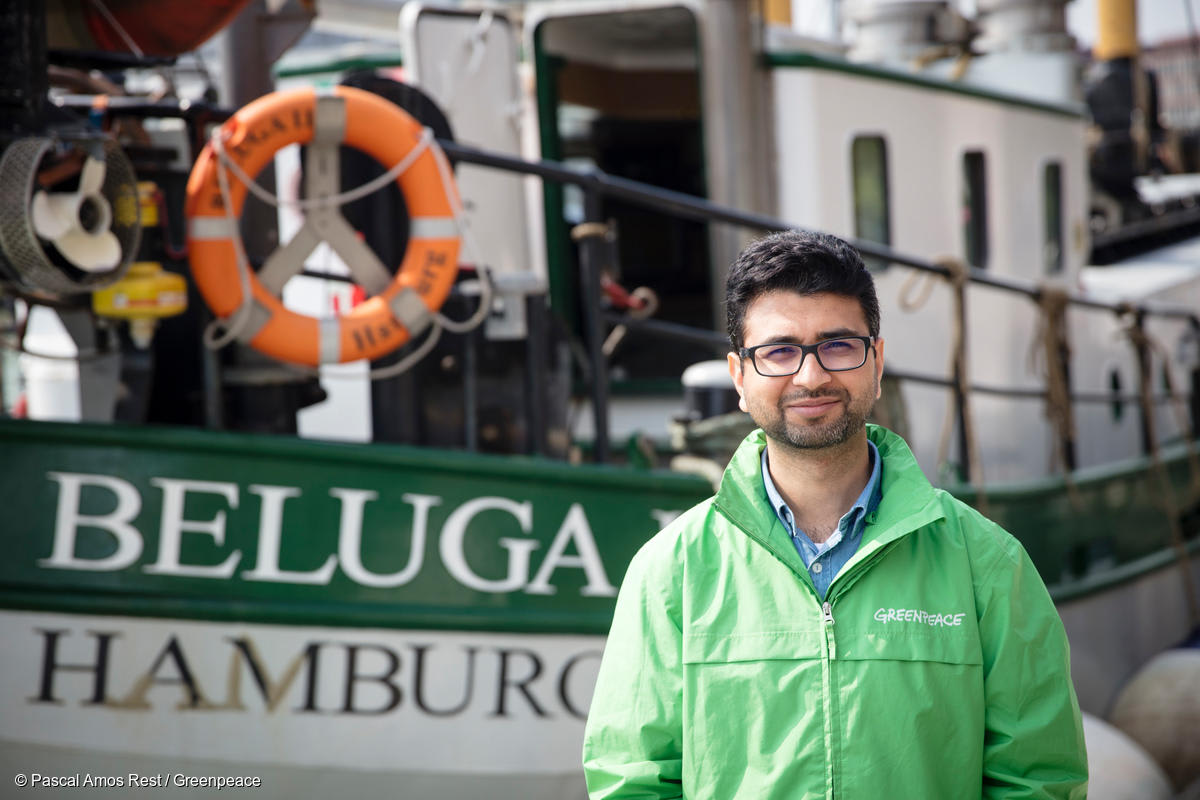What makes working for Greenpeace special for you?
“Greenpeace is a diverse organization with colleagues from different backgrounds and the level of tolerance, acceptance and support is very impressive. I came to Germany as a refugee in 2014 leaving my job, my family, friends and country behind. I had little chance to integrate in a German society with my limited language skills and understanding of the context in general. Fortunately, I was given a chance at Greenpeace even though I had no work permit. Greenpeace supported me with all the bureaucracy to get me a work permit, supported me to learn German and gave me a chance to join the wonderful team to contribute in climate and energy campaign work. I had never felt if I was treated differently because of my color, language or migration background.”
What made you work for Greenpeace?
“I had worked in humanitarian and development aid organizations in Afghanistan with different national and international non-governmental organizations. I have a strong believe in protecting human rights and demand justice for those who are vulnerable and deprived of their rights. I believe Greenpeace is not only an environmental organization but also a humanitarian organization since everything we do is eventually leading to protect our planet earth, ecological system, human beings and human rights. Greenpeace’s principles and values are so close to my goals and heart that I believe joining Greenpeace’s force, I can be a voice for those people who are affected by different interrelated factors including climate crisis threatening their livelihoods, security and homes.”
What does your „typical“ workday look like?
“My typical workday always starts with a short stand up meeting with my colleagues to share our plans for the day. My job requires a lot of research, updates and preparing for different events where I can represent Greenpeace and Greenpeace’s position on climate impacts on humanitarian issues. Since vulnerable countries in the Global south are the hardest hit by climate crisis, there are numerous events to record, update and talk about and integrate the demands in our campaign work to hold the industrialized countries accountable.”
What’s your best Greenpeace memory so far?
“In the first years of tenure at Greenpeace, we organized a two and half months exhibition. The aim was to show the climate change impacts on migration and conflict. We organized the exhibition on the Greenpeace Ship Beluga II. I was on the ship most of the time meeting and discussing the topic with visitors in 15 cities in Germany. It was a great experience to meet new people, share our thoughts and discuss the way forward in protecting the environment and people. At the same time, I had the chance to spend time with different courageous, active and motivated volunteer groups throughout my tour which gave me a sense of motivation to further continue my work with Greenpeace fighting for climate protection and human rights.”


